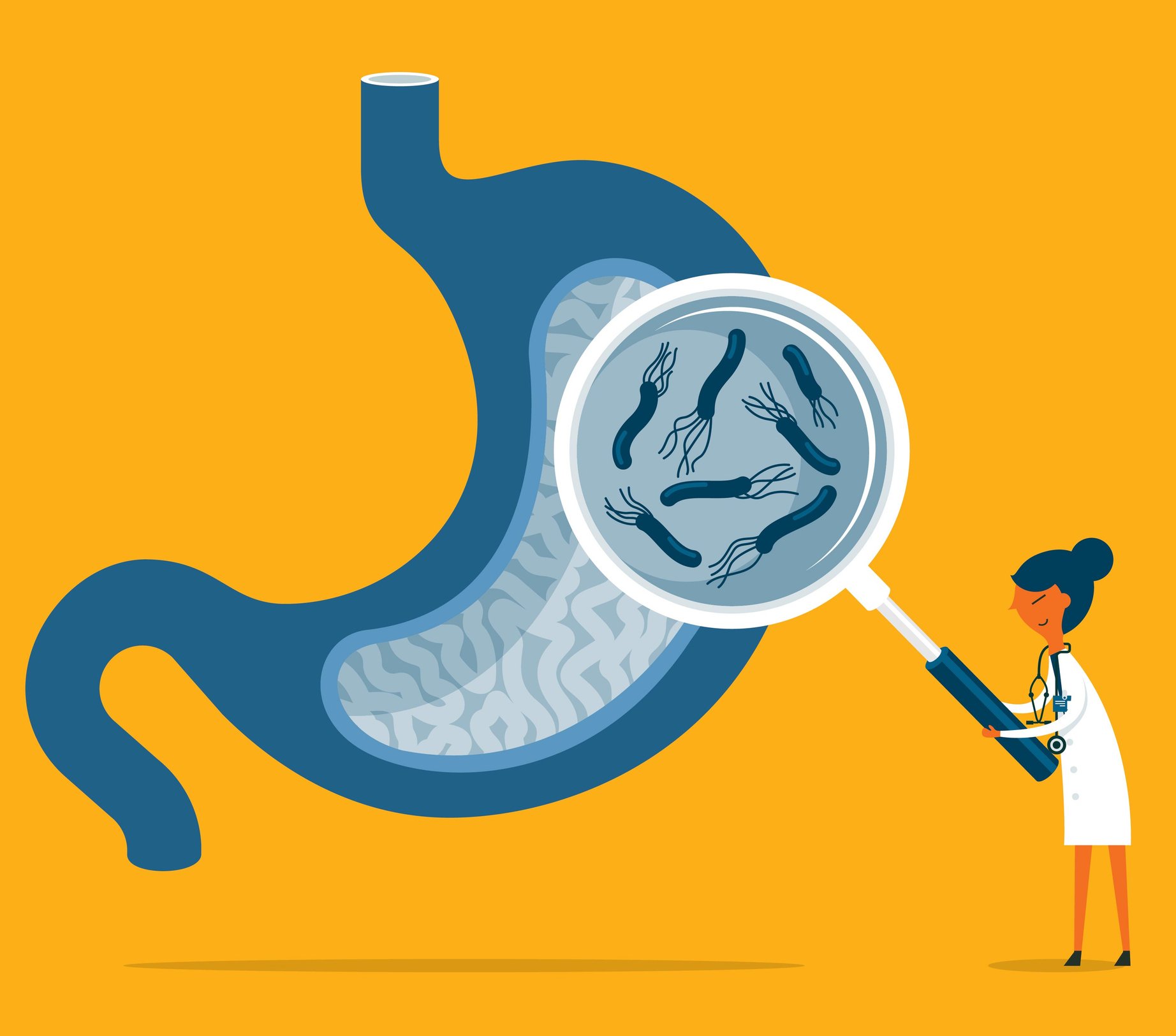The Hidden Germ That Can Raise Your Risk For Stomach Cancer
You can’t see it, feel it, or taste it—but millions of people around the world carry a tiny germ called Helicobacter pylori, or H. pylori, in their stomachs. Most never know it’s there. But for some, this slow-moving infection quietly damages the stomach lining and, over time, can lead to ulcers and even stomach cancer.
During Stomach Cancer Awareness Month, it’s important to shine a light on this common but often overlooked infection—and how early detection can make all the difference.
What Is H. Pylori?
H. pylori is a type of bacteria that lives in the stomach. You can catch it from contaminated food, water, or even through close contact with someone who’s infected. Once it takes hold, it can live in the stomach for years. Many people never feel a thing. Others might notice symptoms like:
A dull or burning pain in the stomach
Bloating or burping
Nausea or loss of appetite
Unexplained weight loss
Because these symptoms can be mild or come and go, people often mistake them for simple indigestion. But ignoring them for too long can give H. pylori time to do damage.
Raising Risk for Stomach Cancer
When H. pylori lingers without treatment, it causes long-term inflammation of the stomach lining. This inflammation can slowly lead to changes in the cells that, over time, increases the risk of developing stomach, or gastric, cancer.
The World Health Organization (WHO) cancer research agency (IARC) has even classified H. pylori as a Group 1 carcinogen—meaning it’s a proven cause of cancer, just like tobacco.¹ According to the National Cancer Institute (NCI), people with chronic H. pylori infection are more likely to develop gastric cancer but treating the infection early can significantly reduce that risk.²
Who Is At Risk?
Anyone can get H. pylori, but the infection is more common in people who:
Live in crowded conditions or areas with limited clean water
Have family members with H. pylori
Have a family history of stomach cancer
Are from regions where H. pylori is widespread (such as parts of Asia, Latin America, or Eastern Europe)
If you fall into one of these groups—or if you’ve had stomach pain that won’t go away—it’s important to talk to your doctor about getting tested for H. pylori infection. The good news is that H. pylori is treatable, usually with two antibiotics and an acid reducer taken for a couple of weeks.
Why Early Detection Matters
Treating H. pylori infection quickly is an important way to reduce your risk of developing stomach cancer. And when stomach cancer is found early, there are more treatment options, and recovery rates are much higher. Unfortunately, many people don’t know they have cancer until it’s already advanced—partly because H. pylori and early gastric cancer can be so silent.
That’s why Cizzle Bio is advancing DEX-G2, a simple biomarker blood test designed to detect gastric cancer in its earliest stage—even before symptoms appear. Clinically validated in the DESTINEX multicenter study published in JAMA Surgery, the test will be available soon to U.S. healthcare providers. If you’ve had ongoing symptoms of stomach discomfort or risk factors for H. pylori infection, talk to your doctor about whether the DEX-G2 test is right for you.
To learn more, please visit: cizzlebio.com

